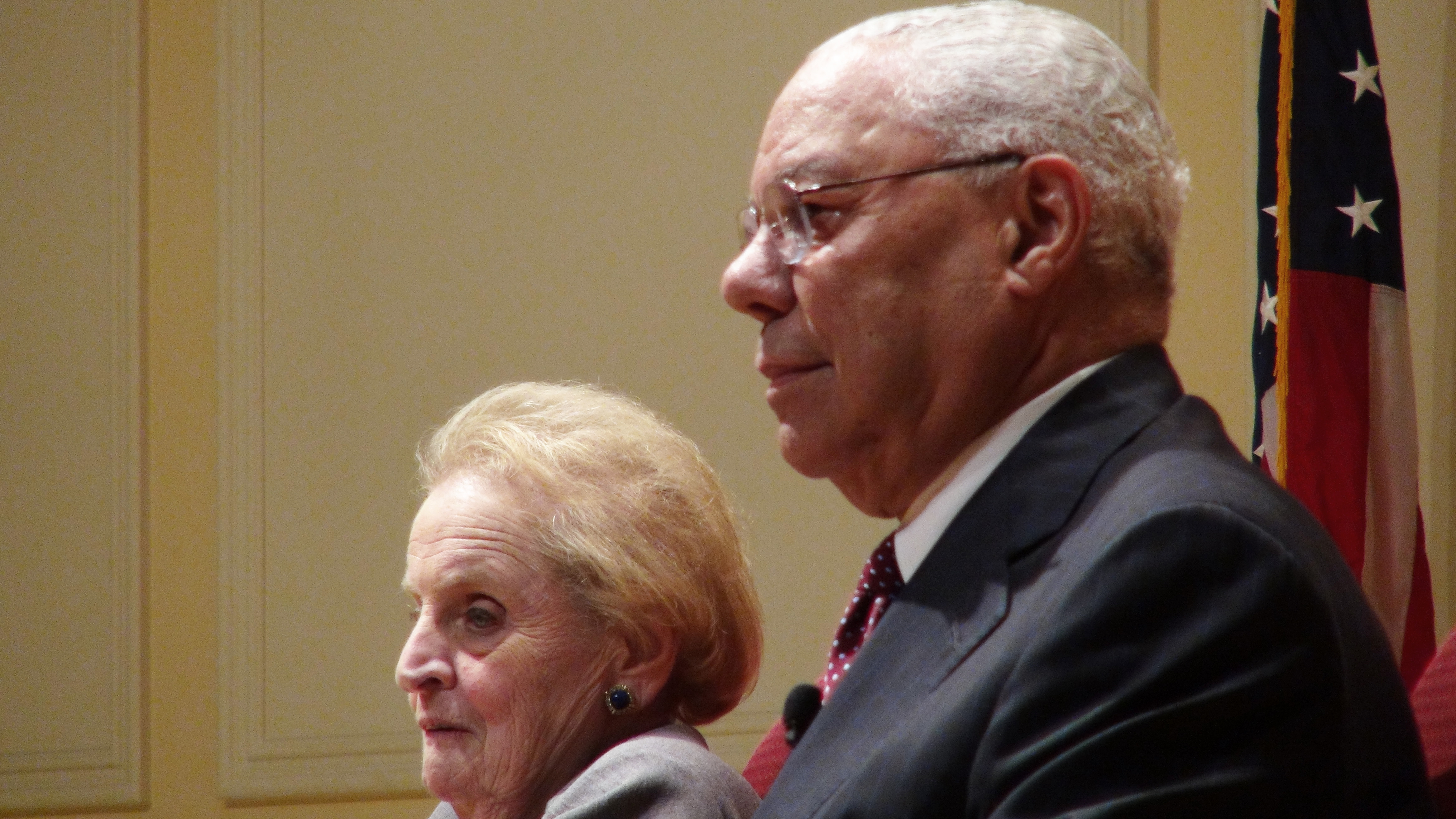WASHINGTON — As Secretary of State John Kerry continued to work on a deal to limit Iran’s nuclear program, two of his predecessors—Madeleine Albright and Colin Powell – discussed the pressures they faced when they were in similar situations.
“It is hard. We were both in negotiations,” said Albright on Wednesday at the Library of Congress, during an event sponsored by the library and the Daniel J. Inouye Institute.
When asked how they would react to the criticism Kerry is currently facing from Republicans in Congress, Albright, who served as secretary of state under President Bill Clinton, said foreign policy is a “shared responsibility” between the White House and Capitol Hill.
“I think the question is … when members of Congress go abroad and criticize the president, and the United States, and make it complicated, then people don’t know what the voice is,” Albright said. “I can just imagine that John Kerry thinks, ‘OK please, I’ve had enough of this.’ I would deal with Iranians rather than you, Sen. McCain. ”
Powell, who served as secretary of state under President George W. Bush, agreed with Albright, saying that more compromise is needed both between the political parties and between the White House and Congress. He also pointed out that the Iran situation isn’t the only pressing foreign policy issue the U.S. is facing.
“We are so consumed with the nuclear deal with Iranians that we are not paying attention to the other things that are far more serious right now,” Powell said. Even if the nuclear agreement is achieved, he said, Iran is still the No. 1 sponsor of terrorism in the world.
“Iranians say they are not developing nuclear weapons,” Powell added, noting that he doesn’t necessarily trust that is true.
In the hourlong conservation, the two former secretaries also said that the United States’ relationship with China is the most important relationship the U.S. will have in 21st century. Albright said the rising nationalism in China and disputes in South China Sea are her main concerns.
However, Powell said he wouldn’t worry about military conflicts between the two major powers. “It’s not in their interest to threaten the United States,” he said, because they are one of our biggest creditors. ”They hold trillions of dollars of U.S. paper.”


